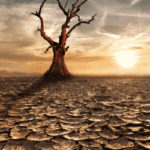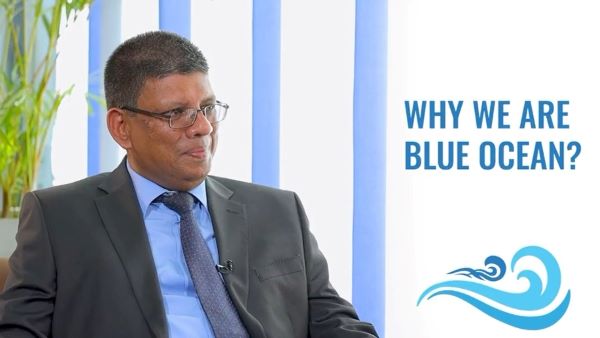Why is the Purpose of Life Inadequately Explained? By N.S.Venkataraman
Men and women who think they have a purpose in life generally assume that animals, birds, and other creatures have no purpose in life. Is such an idea appropriate?
 From time immemorial, humans have wondered about the purpose of human life, as men and women are born seemingly from nowhere and then pass away to nowhere. Several saints and sages all over the world over the years have attempted to find an explanation for this vexing question. However, these deep thinkers could only suggest possible purposes for life, which often appear as assumptions.
From time immemorial, humans have wondered about the purpose of human life, as men and women are born seemingly from nowhere and then pass away to nowhere. Several saints and sages all over the world over the years have attempted to find an explanation for this vexing question. However, these deep thinkers could only suggest possible purposes for life, which often appear as assumptions.Do animals have a purpose?
Men and women who think they have a purpose in life generally assume that animals, birds, and other creatures have no purpose in life. Is such an idea appropriate?
The ground reality is that both humans and animals, and other creatures, want to survive as long as possible, and they all chase everything required for comfortable survival. From this perspective, are humans any different from animals, or are they any better than animals concerning the ultimate purpose of life?
What saints and sages said:
Over thousands of years, several great thinkers and saints from many generations have introspected about the purpose of human life and have attempted to reach conclusions and understanding about the purpose of life through various human experiments like meditation and debates.
The essence of the sayings of the saints and sages is that there is a Superior Force that should be viewed as the cause of the creation and operation of the world, and humans should strive to worship, surrender to, and merge themselves with that Superior Force, often referred to as God.
The concept of a Superior Force is not only appropriate in the view of the saints and sages but is also accepted by modern scientists and technologists. They acknowledge that there should be a Superior Force beyond the capability of human intelligence to understand, which is the cause of events on Earth and elsewhere. However, unlike saints and sages, a scientist may not interpret the term Supreme Force as God to be worshipped but would prefer to “discover” further.
All religions advocate that humans should strive for the liberation of their individual souls from the cycle of birth and death and achieve union with the Supreme Soul or Supreme Force (described as God), which is considered the ultimate purpose of life. This view has been repeatedly emphasized by ancient spiritual scriptures and saints and sages from all religions worldwide. In essence, all religions convey the same concept, albeit with different styles and suggested practices to “reach God.”
Could such views on the ultimate purpose of human life be considered procrastination and assumptions arrived at by great thinkers and philosophers, as they appear to be somewhat laborious explanations?
While recommending the methodology of reaching God, the relationships between the individual soul and the Supreme Soul have been repeatedly discussed by many saints and sages, each offering varying explanations, which marginally differ.
For example, three great Indian thinkers, namely Adi Shankara, Ramanuja, and Madhvacharya, seem to somewhat differ in their perspectives and explanations. Adi Shankara, who espoused Advaita philosophy, concluded that the pervasive Atman (soul) is a common substrate of Jiva (individual soul), Jagat (universe), and Paramatma (Supreme soul/Absolute). On the other hand, Ramanuja, who espoused Visishtadvaita, concluded that Paramatma is the whole, and Jiva and Jagat are its parts. Madhvacharya, who espoused Dvaita philosophy, said that the Paramatma is independent, and Jiva and Jagat are dependent on Paramatma. Bhagavan Sri Ramana Maharshi, a great Indian thinker of the 20th century, seems to echo the Advaita philosophy of Adi Shankara.
In such a context, with great elegance, the Upanishad scriptures give the dictum in Sanskrit: “Ekam sat vipra bahudha vadhanti,” meaning “The truth is one – One God is worshipped in different names.”
Call to realize God and achieve the purpose of life through meditation:
All religions recommend meditation to understand the fruitlessness and purposelessness of the life process and to truly realize the purpose of life. It is stressed that honest and sustained meditation is necessary to realize the feeling of oneness of the individual soul with the Supreme Soul, considered the ultimate purpose of life. Such meditation, for which prayer lays the principal path, helps in removing greed, ego, hate, jealousy, and violence from the mindset, enabling one to reconcile themselves with the conditions of the life process, whether pleasurable or painful. According to the scriptures, such a mindset is the ultimate condition to realize the oneness of the individual soul with the Supreme Soul, often referred to as the purpose of life.
Religions have not advocated inactivity but advocate an active life with pursuits, maintaining an ethical attitude, and having a detached attitude of reconciliation with the end results, whatever they may be. Therefore, it should be understood that religious concepts are in harmony with the natural human urge to pursue ideas and visions.
Beyond human comprehension?
Where do we go from these views on the life process recommended by deep thinkers of the past?
Can one say that the life process is an unending and inescapable process of questioning?
The ground reality is that the Supreme Force or the system operating in the world has been beyond human comprehension for thousands of years and will continue to be beyond human comprehension for all time to come, no matter how much science and technological achievements increase and improve, and scientists strive.
Pragmatic view of Rabindranath Tagore:
With regard to the life process, Nobel Laureate Rabindranath Tagore said, “I slept and dreamt that life was joy. I awoke and saw that life was duty. I worked, and behold, duty was joy.”
Perhaps, Rabindranath Tagore has outlined an ideal way of life, implying that no one should be unduly concerned about the purpose of human life but should carry on adopting an active way of life and aim to achieve peace and joy through fair means to achieve the ends. Tagore has emphasized that tuning the mindset for such an approach is absolutely necessary.
The Upanishad proclaims Sat Chit Ananda – pure existence, pure consciousness, and pure bliss. This realization is the objective of human life.





















